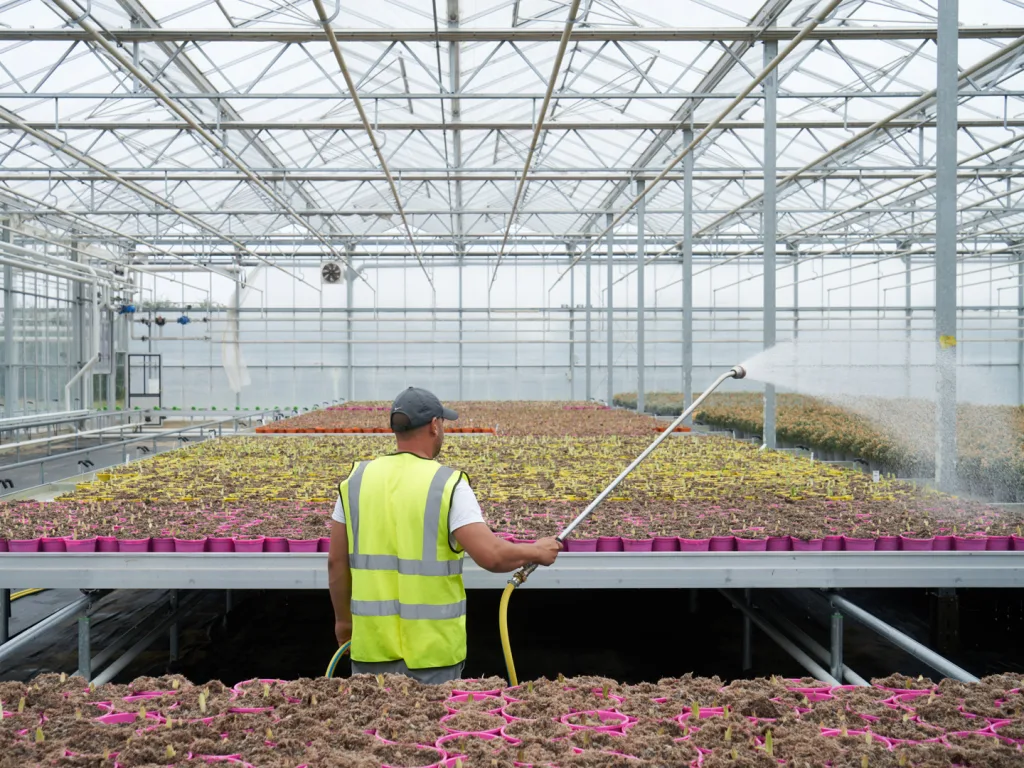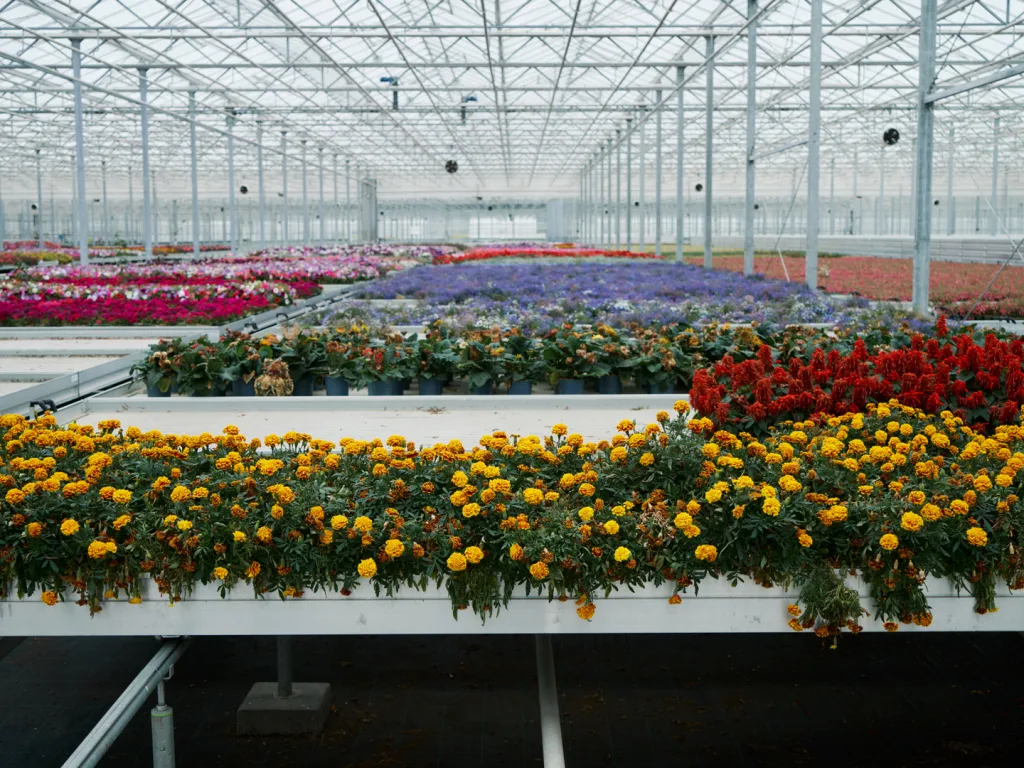- | 8:00 am
The floral scent of your body wash is likely made from petrochemicals. This pilot is trying it with flowers instead
Unilever is testing whether unsold flowers in the UK could be used for product fragrances.

At Bridge Farm Group in England’s Lincolnshire County, rows and rows of roses, petunias, and marigolds fill the company’s 60-acre glasshouse. About 90 million such plants will make their way to retailers across the UK—but not all of them will be sold. Now, researchers are figuring out how to turn the flowers that would otherwise go to waste into product fragrances, through a partnership between the grower, Unilever, and the University of Nottingham.
Whether because of fluctuations in demand or issues with quality, thousands of ornamental plants (including flowers and potted plants) go unsold every year. That amount of waste can top some 990 million tonnes annually, Unilever says, based on data from Bridge Farm and the UK’s Department for Environment, Food and Rural Affairs. While some of those flowers may end up donated or composted, experts at Unilever wanted to explore ways to recycle the blooms.

Unilever makes both home and personal care products, from Sunlight dishwashing liquid to Dove body wash. In general, synthetic fragrances for these kinds of items primarily come from petrochemicals. This pilot, in contrast, would use natural ingredients extracted from waste flowers to make up a product’s scent. “Plants that don’t make the grade still have valuable materials with functional benefits,” Neil Parry, head of biotechnology at Unilever, said in a statement.

To do this, scientists are combining two methods to pull fragrances from flowers: Soxhlet extraction and ultrasonication extraction. In the Soxhlet method, flowers are heated in an extractor, which draws essential oils out from their petals. That’s a traditional way to pull out essential oils, but it tends to take a while—24 to 48 hours. To speed up the process, they’ll also use ultrasonication in Nottingam’s labs, for which sound waves disrupt the cell walls. With that added element, it takes just 20 minutes to extract the compounds, and ends up being more energy efficient. (Unilever said it was too early to see what specific products these fragrances could end up in, but it plans to test the oils for the formulations it uses in some of its home and personal care brands.)
The pilot is in its early stages, and is starting with oils from petunias, roses, and marigolds. “If we see encouraging results,” Parry says via email, then Unilever will carry out a lifecycle and economic analysis “to understand the logistics and the constraints of implementing plant and flower waste materials in the fragrances of our products at a relative scale.” If it works, using essential oils from flowers could help decarbonize our everyday products.







































